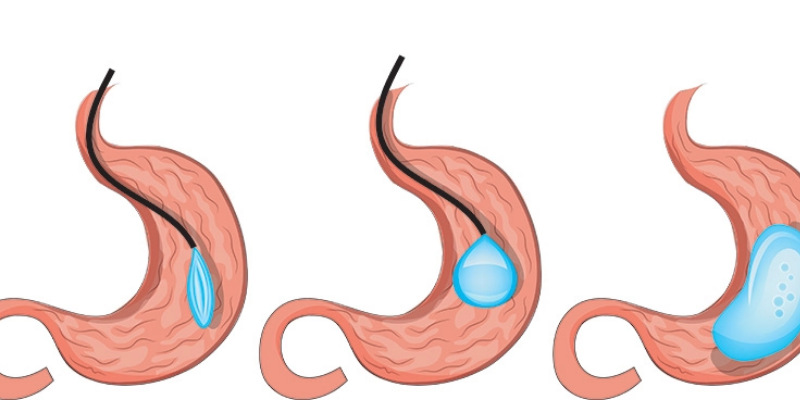Weight Loss Surgery Before And After
Bariatric surgery includes gastric bypass and other weight loss surgery before and after. This entails making changes to your digestive system to aid weight loss. You may require bariatric surgery if diet and exercise haven’t worked or if you’re suffering serious health problems as a result of your weight. As a result of various processes, you may be limited in how much you may drink. Other treatments work by preventing the body from absorbing nutrients. Some techniques are a combination of the two. Despite the obvious benefits of bariatric surgery, all weight-loss procedures are major operations with considerable risks and side effects.
You’ll almost certainly have to go through a rigorous screening process to see if you qualify. You must be willing to make long-term changes in order to live a healthier lifestyle. Long-term follow-up plans may be required of you, which may include monitoring your nutrition, lifestyle, and behavior, as well as medical difficulties. Also, bear in mind that bariatric surgery is a costly procedure.
What Should You Do Weight Loss Surgery Before And After?
Obesity is referred to be an “age-related sickness.” The success rate of obesity procedures has grown dramatically as a result of advancements in medicine and the reliable deployment of applications. As a result, many patients with obesity issues choose bariatric surgery to help them lose weight and safeguard their overall health. Patients with a BMI of 40 or above are candidates for bariatric surgery, often known as weight loss surgery. Patients with obesity issues are more likely to develop major chronic illnesses. As a result, many patients seek obesity surgery in order to achieve weight management and a healthy lifestyle. Depending on the patient’s condition, obesity procedures are conducted in a variety of methods. Operations that disrupt nutritional absorption, restrictive surgeries, and restrictive surgeries that limit nutrient absorption are examples of these procedures. Restrictive operations are used more commonly nowadays since it is simpler to avoid their negative consequences.
The patient should be in good general health and free of any immune system diseases before undergoing obesity surgery. At the same time, the patient’s psychological well-being monitor because it has an impact on the recovery process after surgery. Smoking and drinking should avoid before undergoing obesity surgery. To the point where smoking might make the healing process more difficult by increasing tissue damage. Theoretical knowledge and expertise of the physician doing the obesity surgery are equally critical. As a result, selecting a doctor should do with caution.
Who Is Qualified For Weight Loss Surgery?
Obesity surgery is a weight-loss procedure that allows people who are obese enough to jeopardize their health to permanently lose weight. Obesity surgery necessitates the attainment of certain certifications. Not everyone can announce, “I’m going to get bariatric surgery,” and then follow through with the procedure. The major criterion is a BMI of 40 or over, as well as the presence of other disorders such as diabetes, heart disease, or high blood pressure. The individual should not have an alcohol issue and be in good mental health. Obesity surgery, on the other hand, is not permitted for children under the age of 11 and is not encouraged for those under the age of 16. Obesity surgery is possible if you satisfy all of these requirements.
Physical Preparation Before Weight Loss Surgery
Physical preparation for bariatric surgery is typically difficult since practically all patients who choose bariatric surgery are unable to exercise consistently owing to their health issues and physical limitations. Even little modifications in your daily routine, such as beginning modest exercise for at least 30 minutes, will help. There’s no need to be concerned that your incapacity to exercise before surgery would cause complications with the procedure. Our objective is to train your body and mind to become more active as time goes on, and to make exercise a habit.
Exercising should never be too difficult or strenuous. If you sit for extended periods of time, get up regularly, walk small distances, avoid elevators and escalators, don’t park in the closest mall parking lot, if your work or everyday life stops you from exercising, get up at least a few minutes earlier, go for a stroll, walk your dog, or go for a run. Even taking your youngster to the park will make an impact. Even simple modifications like these can lead to a more active lifestyle.
Post-Operative Surgery
Those considering surgery may have certain reservations. “Will I gain weight again after obesity surgery?” is the first of these concerns. A bariatric surgery’s success defined as achieving the desired weight loss while also eliminating any existing ailments. The postoperative phase is just as crucial as the operation in achieving the desired weight. As a result, various considerations should make following the procedure.
In truth, there are two key factors to consider: eating well and participating in sports. You can say, “If I could accomplish these things, I wouldn’t need surgery.” It is considerably easier to look after them after surgery than it was before. If we take the most frequent sleeve gastrectomy operation as an example, in this procedure, 80 percent of the stomach removed and the stomach shrinks. (This is why it’s commonly refers to as stomach reduction surgery.) Stomach capacity limited in this way. The fundus portion also include in the 80 percent take. The fundus is where the hunger hormone produce. As a result, you will experience less hunger. As a result, paying attention to nutrition will be easy for you. Furthermore, if you follow your doctor’s workout recommendations, you will undoubtedly drop the desired weight.
Water should consume in large quantities. However, before you eat, make sure you drink some water. You should not just consume high-calorie snacks with little nutritional value. Make sure your meals are high in protein. Protein keeps you satiated and helps you build muscle rather than fat. Before swallowing, chew your meal thoroughly. Following the procedure, you will give liquid meals initially, followed by soft foods. You’ll eventually begin to eat solid meals. Nutritional advice will give to you by your doctor.
Is Surgery for Weight Loss Viable If I Can’t Lose with Diet and Exercise?
If diet and exercise are ineffective in your weight loss journey, speak to your doctor about other options. Surgery for weight loss can be an effective and viable option depending on the individual’s situation. It has been proven to reduce the risk of severe medical conditions associated with obesity, such as type 2 diabetes, heart attack, stroke, and certain types of cancer. Additionally, it can lead to improved quality of life, increased mobility, and greater self-esteem. However, bariatric weight loss surgery should only be considered after careful consideration since it is a significant operation with risks such as infection or complications from anesthesia.

Most doctors will require individuals to have undergone a healthy diet and exercise plan before recommending bariatric surgery. Discussing the various weight loss options with your doctor is key in determining if surgery for weight loss is the right choice for you. Your doctor can also provide information on lifestyle changes that can support the success of any chosen course of action. In addition, they can help you understand any risks that may come with this decision and provide resources so that you feel prepared and supported throughout the process. With guidance from a medical professional, surgery for weight loss could be a helpful step toward achieving your health goals.



